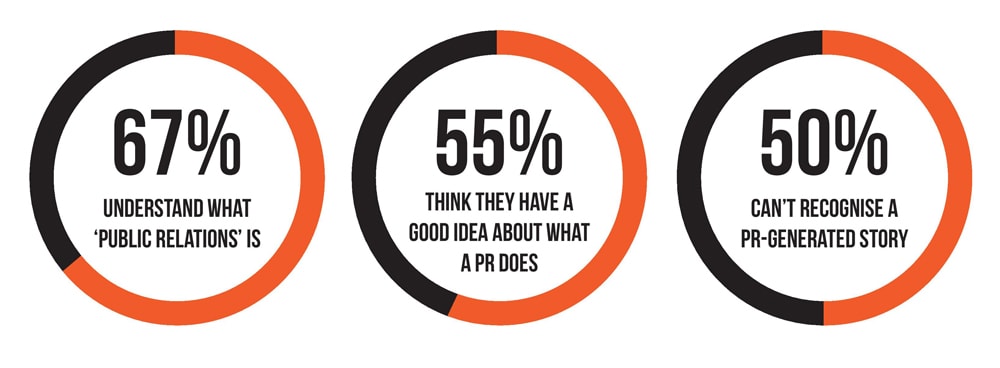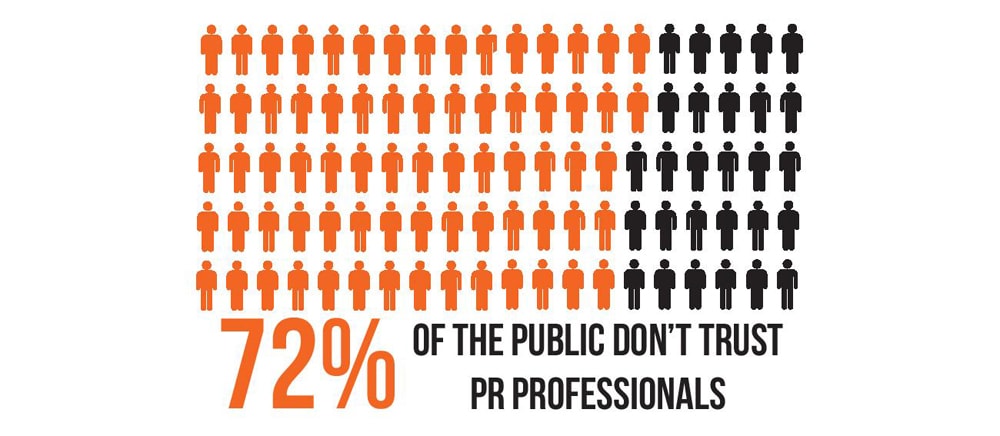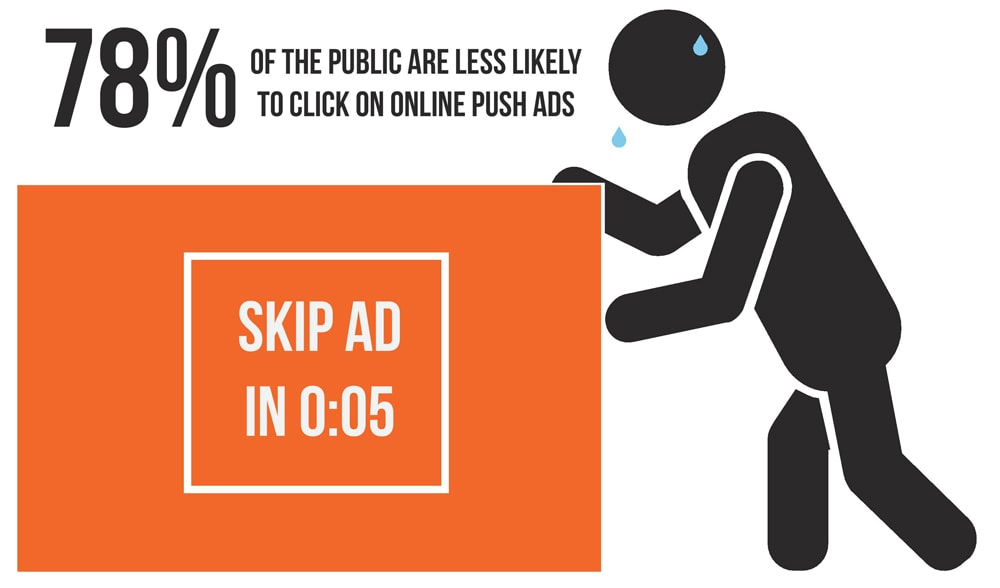It’s safe to say that most public relations professionals have had to sit and smile while friends, family or total strangers wildly speculate about what our average day entails. That’s without even factoring-in all those times we’ve had to sheepishly remind people that we don’t work in advertising, spend all of our time sipping champagne at corporate events or call people “darling”.
And while it may seem like a kind of “PR’s Union” suggestion to claim that the industry is misunderstood by the public at large, a new Atomik Research survey has revealed that this assertion is much more than just “get-out-of-jail-free card” for the put-upon PRO.
The survey of over 2,000 respondents revealed that, even though more than two thirds of the general public say they have a good understanding of what PR is, only 55 per cent would claim to have a strong idea of what a PR professional actually does.
This, teamed with the further revelation that more than half of those surveyed don’t know when they are reading or listening to a PR-generated story, would suggest that there is a real discrepancy between the public understanding of PR and the reality of how they experience it.

But the really concerning revelation is that a full 72 per cent of those surveyed admitted they simply “don’t trust” PR professionals. And the reasons behind these rather alarming figures also give an interesting porthole into the public perceptions of the industry.
First of all, it seems odd that 5 per cent more people “don’t trust PR professionals” than actually understand what PR is. Also, pair this with fact that more than half of Brits can’t tell when they are reading or listening to a PR-generated story and it suggests an industry whose reputation precedes itself.
Indeed, the most common reason given for not trusting PR professionals was simply that they are seen to “always have their own agenda to push” (55 per cent).

Some would argue that these allegations are simply nuggets of truth wrapped-up in layers and layers of misunderstanding.
After all, we aren’t traditional journalists, we are conduits for ideas, movements and the people we represent. We filter information through the public lens, packaging it in a way that they will find interesting and important.
But does this mistrust mean that even the most traditional listener, viewer and reader bases will begin looking elsewhere for their information? Will PR firms need to rethink where they seed their painstakingly crafted content?
Well, let’s not get ahead of ourselves.
One of the most fascinating outcomes of the survey was the instinctive aversion that so many people seem to have to intrusive brand messaging. A massive 78 per cent said they were less likely to click a link that was displayed on a so-called “push ad” on an online source.

While this may not be hugely surprising to anyone who spends hours waiting to skip YouTube ads, for PROs, it should be both a sign of encouragement and a reason for optimism.
The fact is that people don’t like adverts, yet brands, charities and awareness groups need to connect with their audience somehow. Now, cynical as it may sound, what would appear to be the more successful way of doing this: via a medium that the vast majority of the public find intrusive, or one which more than half of them digest without question?
It seems that, despite the instinctive scepticism towards the abstract concept of PR, if the content is interesting, engaging and truly newsworthy, the message is much more likely to land than a more obtuse one. The key is subtlety.
Methodology
The research was conducted by Atomik Research with its online panel – Power of Opinions – live from 13-15 May 2015, using a national representative sample of 2,000 UK adults.
Written by Phoebe Campbell, senior account manager at broadcast agency 4mediarelations
If you enjoyed this article, sign up for free to our twice weekly editorial alert.
We have six email alerts in total - covering ESG, internal comms, PR jobs and events. Enter your email address below to find out more:






